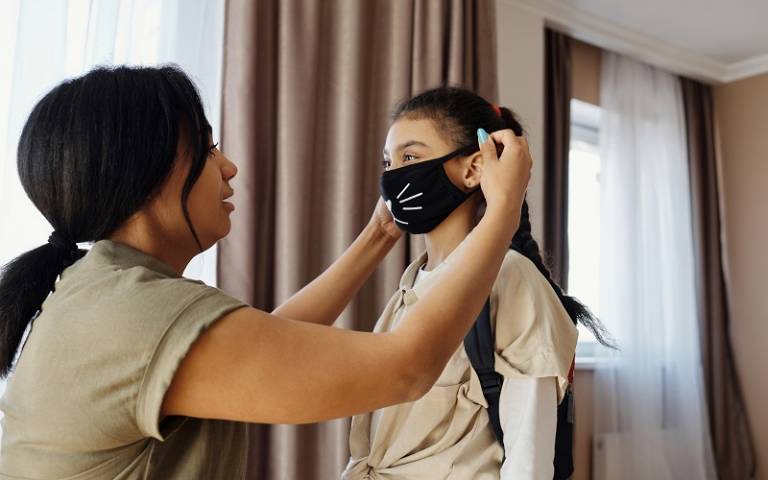There is a ‘hidden’ labour of living through a pandemic
15 April 2021
The COVID-19 pandemic has created a new type of labour in which families and individuals have to spend more time on everyday tasks and practices in an attempt to deal with the repercussions of the pandemic.

This is according to researchers from UCL Institute of Education’s Social Research Institute, who have delivered a presentation as part of the online British Sociological Association (BSA) annual conference.
Dr Katherine Twamley, Dr Charlotte Faircloth and Dr Humera Iqbal looked at qualitative longitudinal data from 38 families with children in the UK examining how daily life has changed for them during the pandemic. In addition to the extra labour caused by the closure of schools and other childcare facilities, they found that there was a hidden labour which contributed to people spending more time on everyday tasks such as making decisions and interacting with people and places. They use the term ‘Covid labour’ to describe this work.
Examples of Covid labour include researching government guidelines and health and safety advice, decision-making about whether to send children to school or meet with people from different households, and consulting with family and friends about staying safe. The team found that resources were an important factor in Covid labour, for example, one participant who was a taxi driver had to undertake a lot of additional work to stay safe and reduce the risk of transmission to the family, such as cleaning their car and clothes and washing as soon as they returned home.
Their talk at the BSA conference explored types of Covid labour and how socioeconomic resources and pre-existing inequalities of gender, class and ethnicity impact different people’s experiences of it. They also found that a lack of trust in government bodies led to increased Covid labour for families.
The UK is one of 10 countries the researchers are looking at to see how the COVID-19 pandemic has changed family life. The FACT Covid: Families and Community Transitions under Covid project also includes entries from Argentina, Chile, Pakistan, Russia, Singapore, South Africa, Sweden, Taiwan, and the US, providing a range of different experiences of the pandemic according to the social distancing measures implemented by the respective countries.
Principal Investigator Dr Katherine Twamley said: “A lot of attention has been paid to the increased childcare and housework which families have experienced when schools and nurseries closed. While we definitely found this to be an important element of parents’ experiences of the pandemic, we also uncovered the added extra labour which living through a pandemic creates and worryingly this is unevenly distributed. Such labour and its inequalities deserves more attention and is likely to be experienced by all individuals.”
The BSA 70th Anniversary Virtual Conference: Remaking the Future took place from 13 – 15 April 2021.
Links
- FACT Covid: Families and Community Transitions under Covid
- Social Research Institute
- Thomas Coram Research Unit
- View Dr Katherine Twamley’s research profile
- View Dr Charlotte Faircloth’s research profile
- View Dr Humera Iqbal’s research profile
- COVID-19 research at UCL Institute of Education
- BSA 70th Anniversary Virtual Conference: Remaking the Future
Image
Image: August de Richelieu from Pexels
 Close
Close

